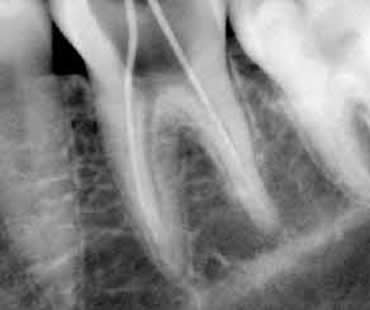
Most people know that keeping your mouth clean is the best way to have an attractive and healthy smile. However not so many will be aware of the benefits to general health. Having healthy teeth and gums helps protect your overall health.
What Is Oral Health?
Oral health is concerned with the condition of any of the structures in your mouth, including your teeth, gums, tongue and all your oral tissues.
How Is Oral Health Related to Overall Health?
When your teeth and gums are healthy then it’s much easier to eat a varied and nutritionally sound diet. Choosing foods that are good for your teeth, for example those that are low in sugar, will also benefit your general health. Having a nice smile helps boost self-esteem, and good oral health decreases the risk of bad breath. It’s also much easier to speak clearly when you have all your teeth.
Which Oral and General Health Conditions Are Linked?
Oral health has been connected to a number of different general health issues. Clinical studies have found links between gum disease and diabetes. For example, uncontrolled diabetes can increase the amount of glucose in the saliva, increasing the risk of gum disease. Conversely gum disease causes bleeding gums that allow bacteria in the mouth to enter into the bloodstream where it’s thought they can create new sites of inflammation, making it more difficult to control blood sugar levels. In addition diabetics find it more difficult to heal. Gum disease has also been linked to heart disease, and people with unhealthy gums could be at increased risk of developing heart issues.
How Can I Achieve Good Oral Health?
It’s important to visit your family dentist in Lawrence, MA as often as recommended. Book professional tooth cleanings at the same time as this will reduce bacteria in the mouth, helping to keep your gums healthy and strong. People with diabetes or other medical conditions that compromise their immune system may need to visit their Lawrence, MA general dentist more frequently.

Whether you call it pop, soda, soft drink, or something else, these terms all refer to a sugary, carbonated drink popular all over the country. It is estimated that Americans consume over 13 billion gallons of soft drinks each year. These beverages can cause serious health problems, including negative effects on your oral health.
Soft drinks are one of the most significant reasons for tooth decay, and it impacts all age groups. From babies drinking it out of bottles to teenagers drinking it all day long to older adults sipping it in retirement homes, it is deteriorating tooth enamel and eroding gums of everyone who consumes it.
Why are soft drinks harmful?
The high sugar content in the drinks is the root cause of trouble, and the high acid content adds to the threat. The sugar combines with bacteria in your mouth to create an acid, which adds to the acid from the drink itself. Then this mixture attacks your teeth. Each time you take a drink of the carbonated beverage, an acid attack begins in your mouth. During this time, your tooth enamel is weakened and cavities are just waiting to form. You may think that the risk goes away by drinking sugar-free soft drinks. Although these are less harmful, they are still acidic and can lead to decay.
How can I avoid harming my teeth?
The ideal way to rule out risks from soft drinks is to cut them out of your diet completely. If you think you just can’t live without them, here are some suggestions:
- Drink more water.
- Set a good example. Drink alternatives yourself and encourage your kids to do the same.
- Sip with straws. This helps keep the sugar from direct contact with your teeth.
- Rinse with water. After drinking a soda, rinse your mouth with water to reduce the amount of sugar and acid hanging onto your teeth and gums.
- Use fluoride toothpaste and mouth rinse. Using fluoride in your daily dental routine helps to reduce decay and strengthen enamel. Also ask your dentist about the possible need for professional fluoride treatments.
General dentist in Lawrence, MA – Schedule your appointment today.

If you have a dental emergency, for example a knocked out tooth or jaw injury, contact your dentist in Lawrence, MA right away for care. Quite often dental problems will develop out of office hours, so it’s a good idea to know how to treat them until you can visit your dentist. The following tips will help you take care of yourself or someone close:
- Bitten Cheeks, Lips or Gums. Gently rinse the affected area using cool water. Use light but firm pressure to apply a clean piece of gauze or washcloth to stop bleeding. An ice pack can help reduce swelling.
- Bleeding Gums. Bleeding gums are frequently caused by gum disease or through brushing your teeth too hard. Rinse your mouth with warm water and be sure to thoroughly brush and floss your teeth as this will help reduce infection and inflammation. Book an appointment with your family dentist in Lawrence, MA for proper diagnosis and treatment.
- Canker Sores. It can help to wash the area with warm salt water. Avoid spicy or very hot foods until the canker sore begins to heal. If it fails to heal after two weeks, contact your dentist for advice.
- Cracked or Broken Tooth. Carefully rinse your mouth with warm salt water. Book an appointment with your dentist to have the tooth mended, and bring any broken pieces of tooth with you to the dental office.
- Loose Baby Tooth. Don’t attempt to pull out the tooth yourself, but instead encourage the child to gently wiggle it from side to side until it eventually comes out on its own.
- Teething Problems. Use a chilled teething ring or a cold washcloth to help soothe your baby’s gums. Gently rubbing the gums can also relieve some of the pressure.
Our dental office is located in Lawrence, MA

Sedation dentistry at our Lawrence, MA dental office helps patients get the care they need for their teeth and can turn an otherwise stressful experience into a comfortable dental visit. Initially developed to focus on patients with special needs and those with acute dental phobias, it has progressed to be utilized by a wide range of patient groups.
Putting off dental care can affect all levels of your health. Even regular cleanings are shown to improve overall health. Untreated issues can lead to bad breath, gingivitis or periodontitis, bone loss, acute gum disease, or other serious issues.
Have you put off your dental care? Have you have been wondering if a faster, more comfortable and relaxed dental experience could benefit you? If so, see if some of the symptoms below are relatable to you.
- You miss regular check-ups and postpone care.
- You experience anxiety at the mere thought of a dental visit.
- It has been years since your last dental examination.
- The sights, sounds, and smells of a dental office cause you to feel uncomfortable and tense.
- You feel exhausted after a dental visit. Your muscles are tired and sore.
- You have an acute gag reflex and worry about vomiting during a dental procedure.
- You have difficulty getting numb during procedures.
- You have a physical condition such as Parkinson’s disease or cerebral palsy that causes you to make involuntary movements.
- You have TMJ (Temporomandibular Joint disorder) or are unable to keep your mouth open for long periods of time.
- Your jaw might be sore for days after a dental visit.
- You need extensive, painful or treatments over several visits, such as gum surgery, bone grafting or extractions.
- You have a fearful and anxious child who won’t follow instructions or sit still during a dental visit.
- You desire the most comfortable dental experience possible.
Does even one of these descriptions ring true for you? If so, talk to your dentist about sedation dentistry today! Don’t wait to enjoy the optimal level of oral care available to you.
Schedule your appointment at our Lawrence, MA dental office

Most people would rather do anything than have a root canal. Unfortunately, this procedure receives a bad rap. A root canal is generally performed to clean out an infected tooth and prevent future problems. Usually, patients feel better after root canal therapy.
Knowing the truth about root canals may help you feel less apprehensive if your dentist recommends this procedure.
- A root canal hurts.
Actually, the pain you feel is caused by the swelling and pressure in your tooth. When a tooth sustains severe trauma, the pulp, or soft nerve center, may die. During a root canal, your dentist will remove the damaged tissue, disinfect the tooth, and seal off the inside. Most people only experience mild soreness afterwards, if they feel any discomfort at all.
- Root canal therapy takes many appointments.
Although this timing depends on the severity of the case, most root canals are completed in one to two appointments. Once your dentist finishes the root canal, you will probably need at least one more visit for restoration of the tooth, usually with an inlay, onlay, or crown.
- I only need a root canal if my tooth hurts.
Pain often lets you know you have a problem with a tooth, but if your tooth root dies you may have no symptoms. The dentist can perform tests to determine the health of a tooth, including temperature and percussion testing.
- The root canal won’t last.
Once the tooth is cleaned and sealed, you should have no further problems with the tooth. Sometimes the restoration of the tooth fails, which can causes the tooth to crack or break. This usually occurs if you wait too long to have a crown or adequate filling placed.
We look forward to seeing you in our Lawrence, MA dental office

Millions of root canal treatments are performed every year, and it is an effective and safe way to save a damaged tooth. Unlike its reputation over the years, modern dentistry allows this procedure to be practically painless and to provide relief from symptoms right away.
Anatomy
The first thing to understand is the anatomy of the tooth. Under the hard enamel on the outside of the tooth and the dentin below that, the interior of a tooth contains pulp. It houses the nerves, blood vessels, and connective tissues that all nourish the tooth. This allows it to grow properly and contributes to good oral health. After the tooth is fully developed, the tooth can get its nourishment from surrounding tissues and the pulp is not as necessary.
Necessity
The pulp can become infected, inflamed, or damaged by problems like decay, injury, repeated dental procedures, or a bad crown. If the damaged pulp is not treated, an abscess can develop or severe pain can result. Often, root canal treatment is the only way to save the tooth instead of having to extract it. Dentists advise that saving a tooth is almost always a better option, providing the most natural appearance, efficient function, and protection of oral health.
Procedure
Many patients report that root canal treatment is not much different for them than having a regular filling done. X-rays are taken and a local anesthetic is administered. Once numb, a dental dam is placed to protect the area during the procedure. Then the pulp is removed, the area is thoroughly cleaned, and then it is filled with special material for this purpose. The tooth is sealed for protection, and finally a crown is placed on top to protect the tooth. Most patients are able to return to normal activities immediately following treatment, and the procedure is permanent in most cases.
If you need a root canal dentist in Lawrence, MA, contact our office today.










